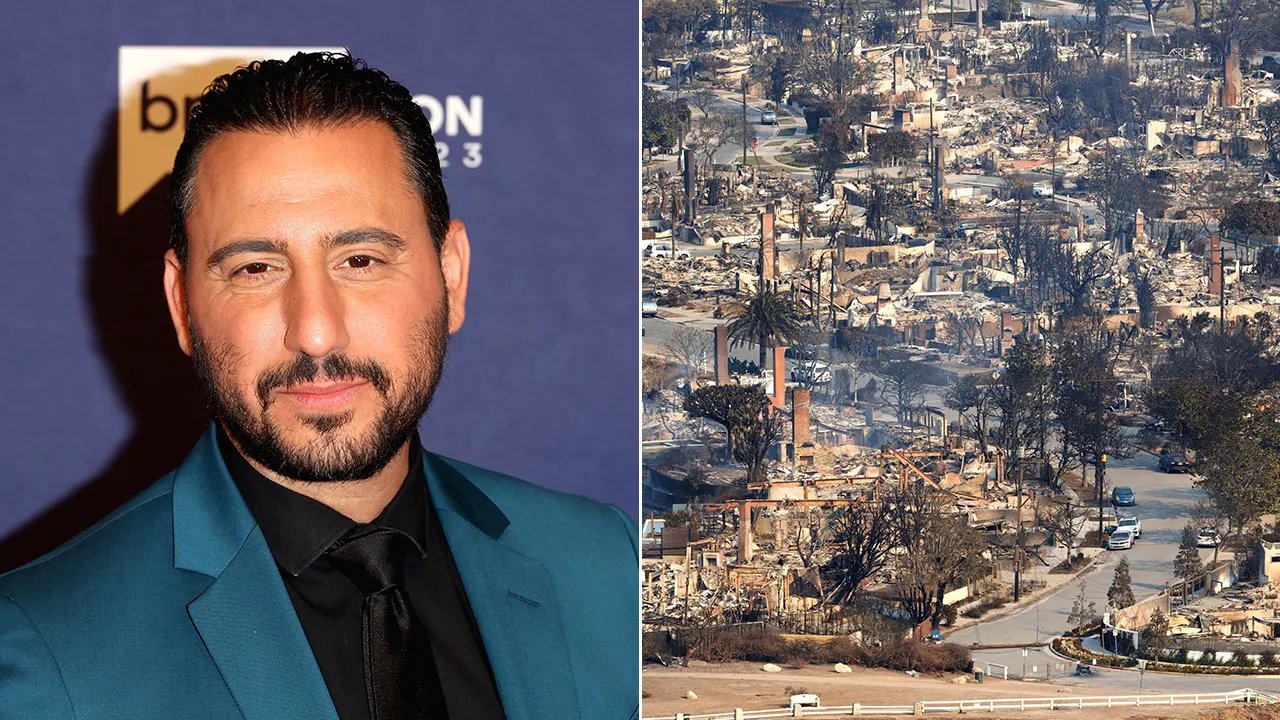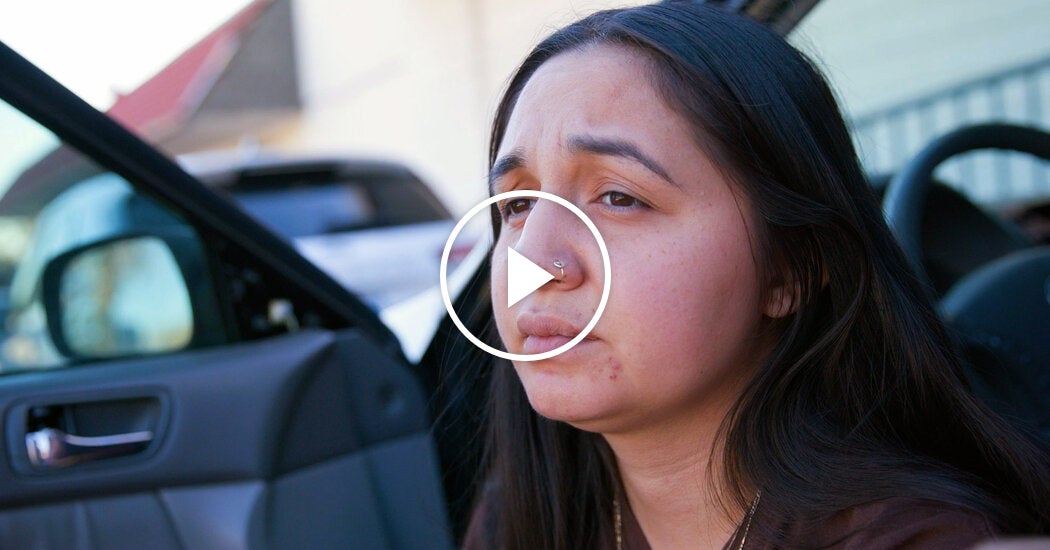
Shatha Sabbagh, a journalism student in her early 20s from Jenin in the occupied West Bank, was returning home from buying sweets with her mother and three other relatives when gunfire erupted.
The group dived to the ground, but for Shatha, it was too late. “He opened his eyes and he was looking at me,” said his mother Nahed Sabbagh, her voice beginning to break. “And then I saw something coming from his head. And at this moment, I realized that my daughter was gone.”
In recent years, the Jenin refugee camp where Shatha was shot — a warren of narrow streets that has become one of the main strongholds of Palestinian militant groups in the West Bank — has repeatedly which has been the target of deadly and destructive raids by Israeli security forces. .
But Shatha’s death in late December came in the middle of something even more unusual: an operation by Palestinian Authority security forces, which are enforcing limited self-rule in parts of the West Bank. , against the militants in the camp.
Palestinian officials say the operation – now in its sixth week, and the largest mounted by the PA in its 30-year existence – is designed to restore law and order against “criminals” in the camp. , which is long beyond PA Control.
The operation was also widely interpreted as an attempt by the PA to demonstrate to the international community that it has the capacity to take on a role in governing Gaza once the war between Israel and Hamas in the enclave ends – an idea that supported by the US, Arab and European states, but strongly opposed by the hardline Israeli government.
Israel and Hamas this week finally reached a multiphase deal to end the 15-month war and release hostages still being held in Gaza. But it is unclear whether this will lead to a permanent end to the war, with far-right ministers in Prime Minister Benjamin Netanyahu’s government calling on Israel to resume hostilities.
“The PA wants to show . . . anyone who thinks about the day after that they will be able to make rules and laws, and that they will be able to play a role not only in the West Bank but also in Gaza,” said Adnan Alsabah, a political analyst from Jenin.
But the killings of civilians like Shatha, who her mother blamed on the PA, and the PA on militants, have fueled anger, and threaten to further erode the fragile PA’s dwindling domestic legitimacy. Built as a stepping stone to a Palestinian state, it is now viewed by many Palestinians as a facilitator of the Israeli occupation.
“The people in the camp used to have an enemy. Now they have two,” said Sabbagh. “(Israel) and the PA – they are two sides of the same coin.”

The PA operation began in December after militants seized two PA vehicles, parked them around the camp to protest the arrest of two Islamic Jihad militants and opened fire on municipal buildings. Since then, PA forces say they have arrested dozens of alleged militants, defused improvised explosive devices and seized large amounts of weapons and ammunition.
But the situation in Jenin remains volatile. When the Financial Times visited, approaches to the camp were blocked by PA vehicles and checkpoints. There were repeated exchanges of gunfire, including one that claimed the life of a 50-year-old woman.
Brigadier General Anwar Rajab, spokesman for the PA security forces, said that in addition to restoring law and order, the operation was intended to prevent militant attacks that would give the Israeli government an excuse to launch a large territorial operation.
Netanyahu’s government, which is widely considered the most right-wing in Israel’s history, is supported by ministers who are determined to annex the West Bank, and who were encouraged by the re-election of Donald Trump.
“We don’t want a comprehensive confrontation with (Israel),” Rajab said. “We will lose this confrontation. We don’t want to let anyone drag us there.”

But some consider the PA’s latest operation, which Rajab said involved “hundreds” of troops, less calculated, and argue it leaves the authority in a bind.
“The PA is not in a position to break up the camp with a lot of force, because if they do that, there will be a lot of casualties and its support will fall off a cliff, and it could also cause unrest in other parts of the West. Bank ,” said Ibrahim Dalalsha, director of the Ramallah-based Horizon Center for Political Studies.
“But with the sending of all the troops, if the PA withdraws now, it will fall, not only in the eyes of its international and regional partners, but also in terms of local politics.”
For now, both sides of Jenin seem to be relatively restrained.
Over the past six weeks, clashes have claimed the lives of six members of the Palestinian security services, and nine others. The PA said there were three militants, but according to the UN, only one was armed.
By contrast, a major Israeli operation in Jenin last year killed 21 people in nine days, according to Palestinian officials. Israel said at the time that it had killed 14 militants. This week, two Israeli drone strikes in Jenin killed 12 people. According to the latest UN data, Israeli forces have killed 795 Palestinians in the West Bank since the start of the Gaza war.
But even if the death toll from the PA operation is relatively small, the fact that Palestinians are fighting each other – even as the Israeli military conducts a devastating attack on Gaza – has sparked widespread searches. in the soul.
“What happened in Jenin is a black page in the history of the Palestinians,” Alsabah said. “It shows the world that we don’t agree, that we don’t have the same platform, that we don’t have the same vision.”
As the operation continued, public pressure for termination grew. Community leaders in Jenin and Ramallah appealed to the PA and the militants to end the stand-off, with further calls following Israeli drone strikes and the announcement of a ceasefire in Gaza. On Friday, an effort was made to resolve the stand-off.
“The situation in Jenin cannot defeat the PA militarily. It has more than 30,000 security forces. It has guns and money to maintain its control. And it has international and regional support,” said Dalalsha.
“The problem with the PA is that its public standing is gone, even before this operation. And the situation in Jenin is still weakening it.”
Cartography and data visualization by Aditi Bhandari and Chris Campbell










